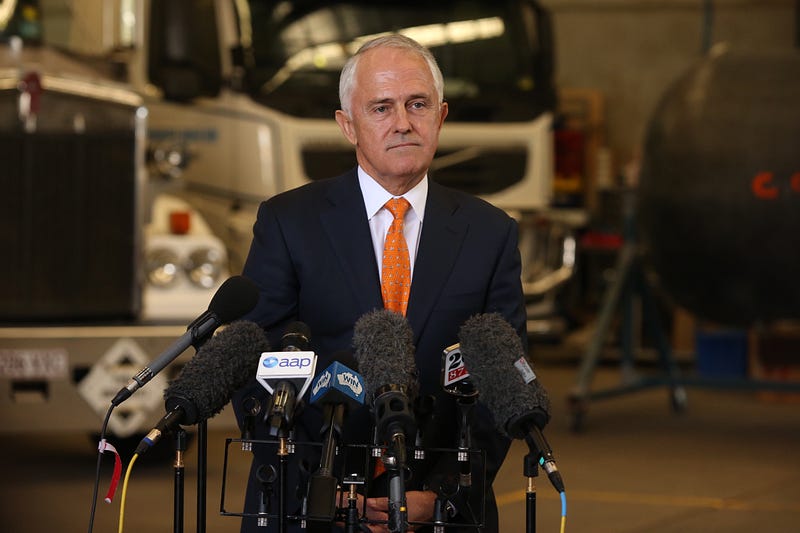The Quest for Open Transparent Government

A year ago the first Turnbull government report card on access to government information was a mixture of hope and disappointment.
The year since saw more of the same.
The OAIC lives
On the hope front the government backed off plans to abolish the independent watchdog, the Office of Australian Information Commissioner after holding the office in the firing line for two years. After five short terms acting in the role Privacy Commissioner Timothy Pilgrim in September was given a long term appointment as Information Commissioner.
But resources and funding are scarce
On the down side the dual appointment of the Information Commissioner/Privacy Commissioner and the decision to not fill the position of Freedom of Information Commissioner, vacant since January 2015, means one person is responsible for functions that the Parliament assigned to three.
Government funding for the OAIC in 2016–17, $9.3 million, is $1.3 million less than the sum allocated in 2013–14 before the attempt to abolish the office.
The information policy functions of the office are not funded, privacy functions have been expanded and own motion investigations into agency practices and compliance seem to be a thing of the past. The OAIC has conducted two own motion investigations of agency FOI practices in six years, the most recent more than two years ago.
Open Government Partnership a plus
Another positive development was the ongoing commitment to the Open Government Partnership, an international initiative that the Turnbull government belatedly joined in November 2015.
Seventy five countries including Australia have signed an Open Government Declaration that states:
“Governments collect and hold information on behalf of people, and citizens have a right to seek information about governmental activities. We commit to promoting increased access to information and disclosure about governmental activities at every level of government. We commit to increasing our efforts to systematically collect and publish data on government spending and performance for essential public services and activities. We commit to pro-actively provide high-value information, including raw data, in a timely manner, in formats that the public can easily locate, understand and use, and in formats that facilitate reuse. We commit to providing access to effective remedies when information or the corresponding records are improperly withheld, including through effective oversight of the recourse process. We recognize the importance of open standards to promote civil society access to public data, as well as to facilitate the interoperability of government information systems. We commit to seeking feedback from the public to identify the information of greatest value to them, and pledge to take such feedback into account to the maximum extent possible.”
After a start–stop-start process impacted by the two month election campaign at year-end 2016 the government completed another OGP requirement signing on to a national action plan containing 15 concrete commitments that cover a range of transparency, anti-corruption, integrity and citizen participation initiatives.
One is to develop “Information management and access laws fit for the 21st Century”:
“Australia will ensure our information access laws, policies and practices are modern and appropriate for the digital information age. As part of this, we will consider and consult on options to develop a simpler and more coherent framework for managing and accessing government information that better reflects the digital era, including the Freedom of Information Act 1982 (FOI Act), the Archives Act 1983 (Archives Act) and, where relevant, the Privacy Act 1988 (with primary focus on the Archives Act and FOI Act), which is supported by efficient and effective policies and practice.”
A network of organisations and individuals including the MEAA is actively involved in holding the government to the Open Government Declaration and seeking to ensure that action to give effect to the ‘fit for the 21st century commitment includes a comprehensive review of law and practice that identifies and addresses the many shortcomings in the current system.
Mixed record for applicants
Meanwhile at the sharp end FOI applicants had the usual mixed experiences. FOI contributed to ground-breaking stories, for example:
- producing details of the Attorney General’s stoush with Solicitor General Justin Gleeson;
- revealing then Senator Bob Day’s financial arrangements for his electoral office;
- how millions of dollars are flowing from Australia to European tax havens; and
- that the Prime Minister and ministerial colleagues were told wind power wasn’t to blame for South Australia’s blackout.
On the other hand, the more common experience of journalists was delay, high and sometimes questionable charges, overuse of exemptions and some evidence that agencies were “gaming” the system.
Wickr messages between the Prime Minister and Kevin Rudd concerning his intended candidacy for Secretary General of the United Nations “went missing”.
The government fought hard and spent thousands of dollars seeking to resist disclosure of a letter written to Deputy Prime Minister Barnaby Joyce in which the Secretary of the Department of Agriculture told him he no longer had confidence in the Minister’s ability to resolve integrity matters. The Information Commissioner had ruled the letter was not exempt. The department eventually conceded and released the letter on the steps of the Federal Court.
The ‘Diary wars’
Access to information about who ministers meet in the course of their ministerial duties-information that in NSW Queensland and many other jurisdictions is published as a matter of routine — proved troublesome.
The Attorney-General Senator Brandis, the minister responsible for the Freedom of Information Act, in seeking to avoid processing a request for some entries in his appointments diary for three months in the lead-up to the 2014 Budget argued an interpretation of the law before the Administrative Appeals Tribunal and the Federal Court of Australia that both rejected.
Six months after the Federal Court decision that there were no grounds to refuse to process the application by Shadow Attorney General Dreyfus the Attorney General’s office hadn’t completed the task and only released an edited version after talk of contempt of court proceedings. The process had taken three years.
Talk about “tone at the top”!
The Brandis episode wasn’t the end of the Diary Wars either. The Information Commissioner had to rule on whether entries in the Prime Minister’s Appointments Diary were exempt. He found the arguments against disclosure were unpersuasive and that many entries should be released. The Prime Minister’s Office is appealing the decision.
And a journalist had to seek a further ruling from the commissioner that Communications and Arts Minister Mitch Fifield’s diary entries for a three month period in 2015 were not exempt.
On it goes …
There is an easier way of course, in line with the spirit and intent of the FOI act — simply publish appointment diaries.
The public is entitled to know who ministers meet in carrying out their duties.
By their deeds you shall know them
Hope springs eternal, so all eyes on that Open Government Partnership commitment to take things in the right direction in the year ahead.
As Attorney General Brandis then in opposition said in 2009:
“The true measure of the openness and transparency of a government is found in its attitudes and actions when it comes to freedom of information. Legislative amendments, when there is need for them, are fine, but governments with their control over the information in their possession can always find ways to work the legislation to slow or control disclosure. That is the practice we are seeing now under the Rudd government, whose heroic proclamations of commitment to freedom of information are falsified by the objective evidence of their practice.”
Peter Timmins writes the Open and Shut blog www.foi-privacy.blogspot.com.au and is Interim Convener of the Australian Open Government Partnership Network www.opengovernment.org.au
